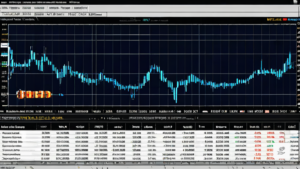The Essential Guide to Rule-Based Trading: A Comprehensive Exploration of the Rules that Govern Successful Trading

Introduction: The Power of Rules in Trading
In the realm of trading, where uncertainty and volatility reign supreme, the ability to make informed decisions and adhere to a disciplined approach is paramount. Rule-based trading emerges as a cornerstone of successful trading, providing traders with a structured framework to navigate the complexities of the financial markets.
The Necessity of Rules: A Foundation for Success
Without a set of clearly defined rules, traders are left adrift in a sea of emotions and impulses, prone to making irrational decisions that can lead to disastrous consequences. Rules serve as a beacon of guidance, providing traders with a roadmap to navigate the market’s treacherous waters.
The absence of rules can hinder the evaluation of performance and the identification of areas for improvement. By establishing a set of objective criteria, traders can gain valuable insights into their trading strategies and make informed adjustments to enhance their profitability.
The Pitfalls of Rule Disregard: A Recipe for Disaster
Disregarding rules is akin to playing with fire in the financial markets. It is a surefire recipe for account blowouts, a fate that has befallen countless traders who succumbed to the allure of impulsive trading.
The rise of computer trading serves as a testament to the power of rules. Algorithms, programmed to execute trades based on predefined criteria, eliminate the emotional biases that often plague human traders and ensure consistent adherence to trading principles.
Crafting a Rule-Based Trading Plan: A Tailored Approach
The development of a rule-based trading plan is not a one-size-fits-all endeavor. Each trader must carefully consider their unique circumstances, including their experience level, account size, and risk tolerance, to establish a set of rules that align with their individual needs.
Experience Level: A Guiding Factor
Traders with extensive experience may possess the flexibility to implement more nuanced rules, while those with limited experience should adopt a more rigid approach to minimize the potential for costly mistakes.
Account Size: A Critical Consideration
Account size plays a significant role in shaping trading rules. Traders with smaller accounts may need to adopt more conservative rules to manage risk effectively, while those with larger accounts may have the capacity to implement more aggressive strategies.
Risk Tolerance: A Personal Threshold
Risk tolerance is a highly personal factor that should be carefully considered when establishing trading rules. Traders with a high risk tolerance may be willing to accept greater potential losses in pursuit of higher returns, while those with a low risk tolerance should prioritize capital preservation.
The Importance of Risk-to-Reward Ratio: A Path to Sustainability
A favorable risk-to-reward ratio is the cornerstone of sustainable trading. Traders must carefully assess the potential risks and rewards associated with each trade and establish rules that ensure they are not risking more than they can afford to lose.
By implementing a strategy that limits losses and maximizes profits, traders can create a trading plan that promotes long-term success and minimizes the emotional turmoil that often accompanies trading.
Trading Time Frames: Optimizing Performance
The time of day and the days of the week can have a significant impact on trading performance. Traders should analyze their historical trades to identify the time frames that have been most profitable and develop rules that guide their trading activity accordingly.
Some traders may excel in overnight trading, while others may perform better during regular market hours. By identifying their optimal trading time frames, traders can maximize their chances of success.
The Impact of News Events: A Double-Edged Sword
News events can have a profound impact on the financial markets, creating both opportunities and risks for traders. While some traders may choose to avoid trading during news events, others may see them as a source of volatility and potential profit.
Traders should carefully consider their trading system and risk tolerance when determining how to approach news events. Some systems may be able to accommodate the volatility associated with news, while others may be better suited to avoiding it.
Conclusion: The Path to Trading Mastery
Rule-based trading is not a magic bullet that guarantees success, but it provides traders with a structured framework to navigate the complexities of the financial markets. By carefully considering the factors discussed in this article, traders can develop a set of rules that align with their unique circumstances and trading goals.
Remember, the journey to trading mastery is an ongoing process that requires discipline, patience, and a willingness to adapt. By embracing the power of rules and continuously refining their trading strategies, traders can increase their chances of achieving long-term success in the dynamic and ever-evolving financial markets.




